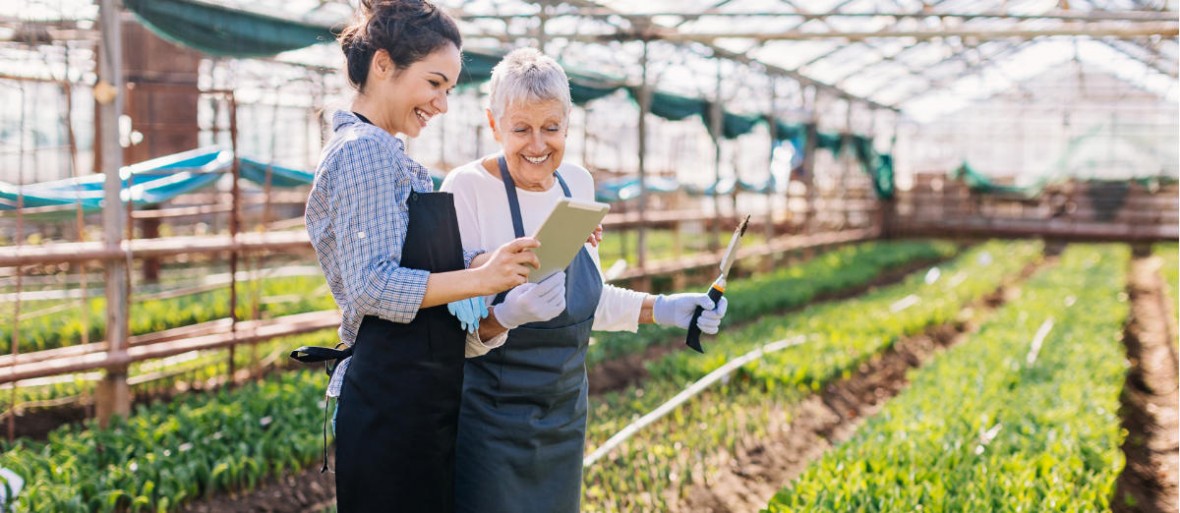The Argentine Network of Food Banks and IFCO step up their long-term partnership to ensure that no good food is wasted. Every lemon harvest, for instance, IFCO RPCs play a key role in the Yellow Tide rescue program, transporting surplus lemons to vulnerable people sustainably and cost-efficiently.

The year 2019 was a particularly rotten one for the lemon harvest in Argentina. Due partly to the impact of climate change and a harsh economic environment, a significant volume of the lemon harvest was wasted. On learning that thousands of tonnes of lemons ended up rotting in plantations or in landfills that year, the Argentine Network of Food Banks turned frustration into motivation and radical action.
Within four months, Josefina Correa, the Executive Director at the Food Bank of Tucumán, which is part of the Argentine Network of Food Banks, had kickstarted the Yellow Tide rescue program. For the region of Tucumán, citrus fruits enjoy a special status. In this north-western province there are more than 43,800 world-class citrus fruit plantations, which makes it Argentina’s most important region for this citrus fruit. With a yearly production volume of around 1.5 million tonnes, Argentina is one of the world’s largest producers and exporters of lemons.
"The overriding goal of Yellow Tide is to build long-term strategic alliances to enable the redistribution of surplus lemons to vulnerable people, while also having a positive impact on the environment. And not just in Tucumán but across every region in Argentina," explains Correa.
To this end, the organization works with producers, suppliers and transportation providers.
To ensure the program’s success, the Argentine Network of Food Banks also strengthened its long-term partnership with IFCO as its supplier of reusable packaging containers (RPCs), which originally started back in 2007 with a local food bank in Buenos Aires.
"The Yellow Tide program grew out of a passion and a sense of responsibility to avoid food waste," says Emilio Leloir, Country Manager at IFCO. "These are strong feelings that the IFCO team share deeply, which is why IFCO is proud to be part of the solution."


In 2022, the Yellow Tide rescue program collected and redistributed over 140,000 kilos of surplus lemons to vulnerable people across Argentina.
Boosted by its initial success, the program now runs throughout the Argentine lemon season, from April to August. As producers expect the total lemon surplus to continue to increase, the Argentine Network of Food Banks is also doubling down on its efforts to recover surplus lemons.
Specifically, it has set itself a goal of redistributing 300,000 kilos in 2023. And IFCO is determined to play a pivotal role in the program’s ongoing mission.
“By donating the innovative reusable packaging containers to our cause, IFCO ensures we can transport the fresh produce easily and safely in a cost-effective and sustainable way across the whole of Argentina to the regional food banks. As a result, we continue to make a positive impact on food waste at every lemon harvest.”
As for any fresh products, the logistics operation for the food bank is complex and has to be carried out rapidly before the citrus fruit gets too ripe to ship or spoil.
The IFCO solution works smoothly for the producers – many of whom, including Rie La Huerta in Mendoza and Zamora Citrus in Tucumán are already using IFCO RPCs to transport their fresh products anyway – and provides robust protection and perfect ventilation during transportation.
In addition, the IFCO RPCs are user-friendly. This is particularly important as the food banks often work with volunteers who have only limited availability. On top, with the IFCO solution, the food bank network gets a solution that is more sustainable than other options involving single-use packaging. On top, with the IFCO solution, the food bank network gets a solution that is more sustainable than other options involving single-use packaging.
"At IFCO, we are working hard to make it easier and cost neutral for producers to donate their surplus food to the Argentine Network of Food Banks," explains Leloir. In the past, producers were often reluctant to donate surplus food because donations were associated with bureaucracy and costs. And because of the transport restrictions on exports. It was simply more efficient to let the food rot or to send it to landfill.
That is changing thanks to the commitment of the Argentine Network of Food Banks and the IFCO team in Argentina. Importantly, the IFCO solution also saves the food bank network considerable sums of money and resources. By eliminating single-use packaging where possible, for instance, the food bank recently saved nearly $20,000 on packaging costs in just one year.
What’s more, the reusable packaging containers are designed to fold neatly and securely, which takes up less space during transportation of the containers to the producers. This design therefore saves on trucks and transport costs. In general, when IFCO RPCs are used, the space-saving collapsible design means there are 67% fewer trucks on the road per year, which is also a win for reducing carbon emissions.
But the sustainability benefits don’t end there.
“At IFCO, we are working hard to make it easier and cost neutral for producers to donate their surplus food to the Argentine Network of Food Banks.”
"As well as fighting food waste, we are firmly focused on implementing solutions that cut down on general waste at our facilities," adds Correa. "The IFCO approach offers us a circular model for food-safe packaging. Instead of adding to the landfill with single-use packaging, the IFCO model allows us to reuse packaging. It’s a more sustainable way to support our community." In addition, the RPCs come in standardized sizes, which means they are easier to palletize and calculate packaging requirements. "Our daily workload and processes are much easier with the IFCO RPCs," confirms Correa.
The Yellow Tide program is just one excellent example of how the IFCO partnership with the Argentine Network of Food Banks is helping to fight food waste and food insecurity.
While lemons are a priority from April through to August when it comes to redistribution, they are not the only surplus fresh product that the organization rescues with the support of IFCO packaging solutions.
Not only does the food bank network use IFCO RPCs to transport lemons from producers to the food banks, but it also finds that the reusable packaging containers are ideal for all kinds of fresh products, from kiwis to oranges. What’s more, the RPCs have the perfect dimensions to transport milk and other dairy products.


According to data provided by the Food and Agriculture Organization of the United Nations (FAO), approximately 16 million tonnes of food are lost or wasted in Argentina every year. That comes to about 362 kilos per person. It’s estimated that 12.5% of the food produced in the country is wasted.
For this reason, the work of the Argentine Network of Food Banks, which is a member of the Global Foodbanking Network , is more relevant every day. In total, the organization has 24 member food banks around the country and currently collects and redistributes around one million kilos of
surplus food every month. In a country where the poverty rate has been more than 50 percent for the past years, such food bank initiatives provide an important lifeline for many people. In fact, this network helps more than 900,000 people across the country.
IFCO is currently collaborating with local food bank organizations in 25 countries, including across the whole of Latin America. "As the leading RPC pooling company with the largest global network, we’re active in communities around the world," says Iñigo Canalejo, Vice President ESG & Strategic Marketing at IFCO. "Together with our employees and non-profit organizations, we’re giving back to our communities and supporting important causes."
To cement such a commitment, in 2022, we signed an important agreement with the European Food Banks Federation (FEBA) to become their official "RPC Partner." IFCO colleagues and senior management team have also volunteered their time to food banks.
"The support that IFCO continues to provide around the world to food bank organizations is a source of pride," adds Canalejo. "It’s a core component to our overall commitment to create a thriving society within a thriving circular economy. Food bank partnerships and programs allow IFCO to give back to the local community in an impactful way."
Such long-term partnerships also support IFCO’s overall ambitious environmental, social and governance (ESG) goals and contribute to the United Nations Sustainable Development Goals, such as goal 2 (Zero Hunger) and 12 (Responsible Consumption and Production).

“Food bank partnerships and programs allow IFCO to give back to the local community in an impactful way.”
"The global energy crisis and ongoing geopolitical crises impact food waste and food insecurity here in Argentina," explains Pablo Algrain, Executive Director at the Argentine Network of Food Banks.
"Using the standardized, robust reusable packaging containers from IFCO really makes a difference to our mission to rescue and redistribute safe and healthy fresh produce to vulnerable people. And we can do it now in a more efficient and sustainable way."
The partnership between IFCO and the Argentine Network of Food Banks is making it easier for producers to make the choice that is ethically the right one. And that’s donating surplus food to the people who need it most.

“Thanks to the timely, dedicated and long-term support of the IFCO team, together we made sure that the Yellow Tide initiative was a success from the beginning. And we will continue to repeat this achievement for other fresh products in the future.”
Stay up to date
Want the latest fresh food packaging industry knowledge delivered straight to your inbox? Subscribe to our newsletter and get the latest news, trends, articles and more!
